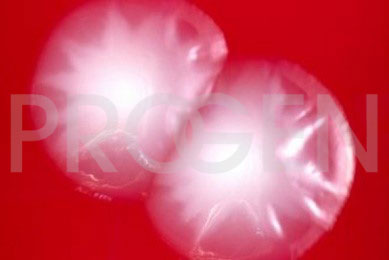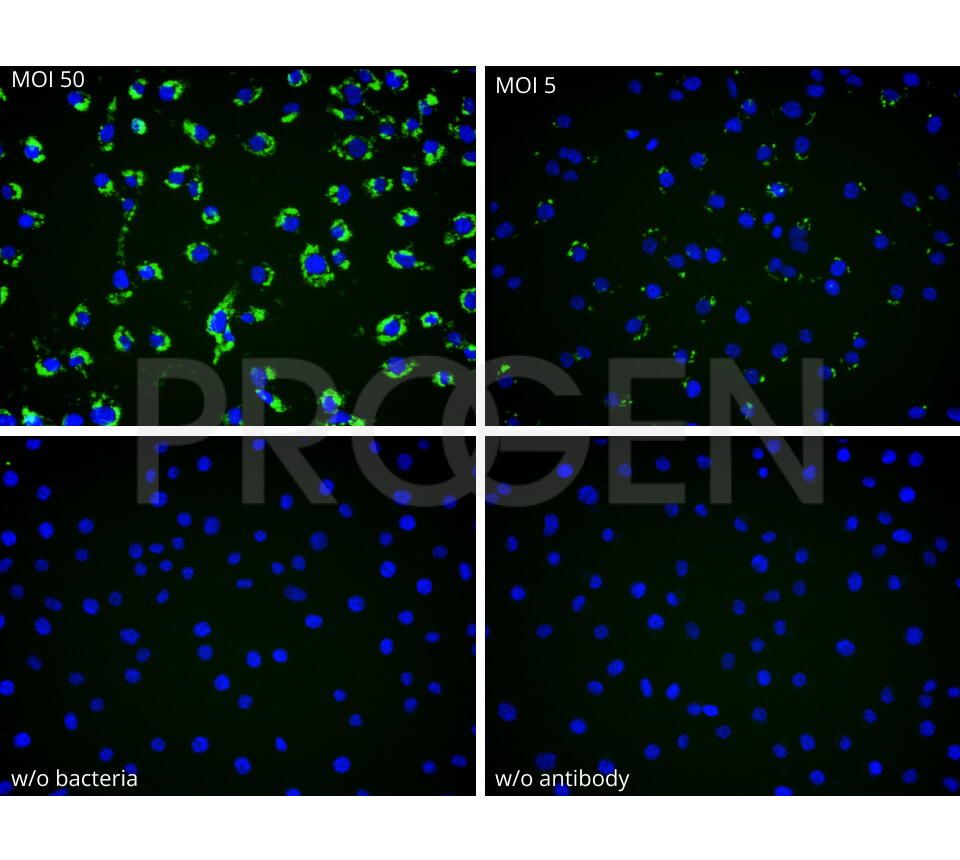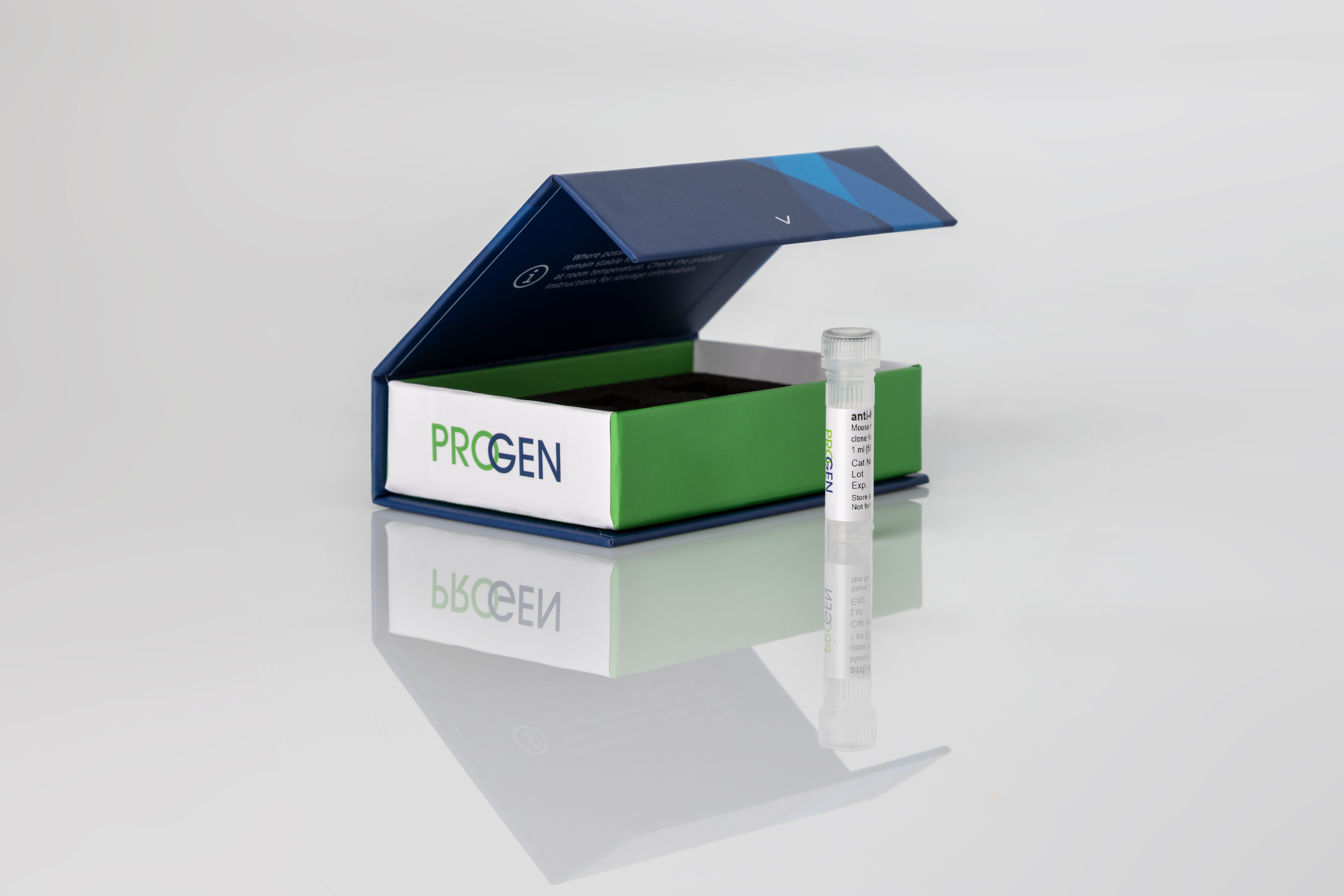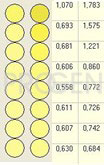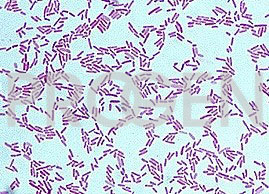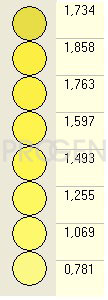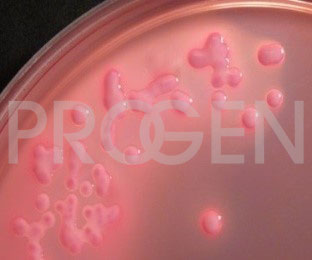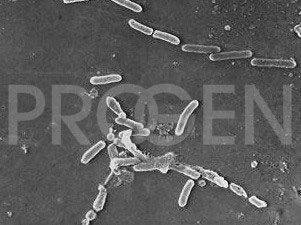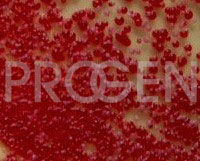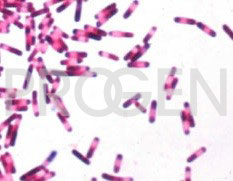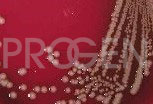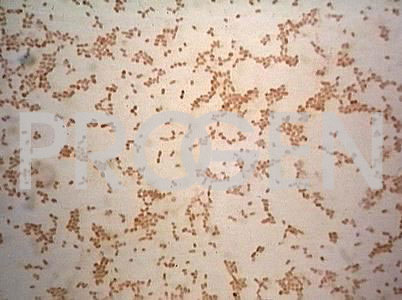anti-Enterobacter aerogenes mouse monoclonal, EBS-I-103, purified
- Mouse monoclonal
- Suitable for ELISA, FACS, ICC/IF and IHC
- Reacts with E. aerogenes
- Isotype: IgG3 kappa
Product description
| Quantity | 1 ml (100 µg/ml) |
|---|---|
| Antibody Type | Monoclonal |
| Host | Mouse |
| Isotype | IgG3 kappa |
| Conjugate | Unconjugated |
| Application | ELISA, FACS, ICC/IF, IHC |
| Purification | Affinity chromatography |
| Reactivity | E. aerogenes |
| Storage | 2-8°C |
| Intended use | Research use only |
| Clone | EBS-I-103 |
| Immunogen | Crude sonicate of Enterobacter aerogenes |
| Concentration | 100 µg/ml |
| Formulation | PBS with 0.02% sodium azide |
Applications
| Tested applications | Tested dilutions |
|---|---|
| Immunocytochemistry (ICC)/ Immunofluorescence (IF) | 1:100-1:200 (0.5-1.0 µg/ml) |
| Immunohistochemistry (IHC) - frozen | 1:50-1:100 (1-2 µg/ml) |
| ELISA | Assay dependent |
| Flow Cytometry (FACS) | 0.5-1.0 µg/million cells in 0.1 ml |
Background
Enterobacter aerogenes is a Gram-negative rod-shaped microorganism from the Enterobacteriaceae family. E. aerogenes forms part of the endogenous human gastrointestinal (GI) microflora. It also resides in soil, water and in dairy products. Generally infections arise from the patients's own flora; however, cross-infection can occur via the hands of healthcare workers, during insertion of medical devices and in surgical procedures. Contaminated surfaces may play a role in the transmission of Enterobacter, particularly during outbreaks. Enterobacter species are notorious for their drug resistance. E. aerogenes uses three mechanisms of resistance; inactivating enzymes, alteration of drug targets and alteration of the ability of drugs to enter and or accumulate in its cells. Some of the antibiotics that E. aerogenes is known to be resistant to include beta-lactam antibiotics, aminoglycosides and quinolones.
Positive control: E. aerogenes extract or infected cells or tissue.
Downloads
Q & A's
Customer Reviews
Login
FAQs
The concentration of purified antibodies is mentioned on the datasheet.
For prediluted antibodies the concentration may vary from lot to lot. The concentration of these antibodies is not mentioned on the datasheet and can be requested at support@progen.com.
The supernatant format contains FCS proteins from cell culture medium supplemented with FCS.
The serum antibodies contain other proteins present in serum.
- Supernatant and supernatant concentrate: This format contains hybridoma cell culture supernatant. The antibody is not purified and the antibody concentration is not determined. The antibody concentration may vary from lot to lot. Therefore we recommend to titrate the optimal concentration for the application used for each new lot.
- Lyophilized, purified: This format contains purified antibody in lyophilized form. The reconstitution of this antibody is described in the datasheet. The buffer composition after reconstitution is also mentioned on the datasheet.
- Liquid, purified: This format contains purified antibody in liquid format. The concentration is mentioned on the datasheet.
- Prediluted, purified: This format contains purified antibody in liquid format. Most antibodies in this format are diluted to be ready-to-use for IHC with standard tissue. But some antibodies of this format need further dilution for IHC. This is mentioned on the datasheet.
Most of our liquid antibodies and reconstituted lyophilized antibodies may be stored for short term storage (up to 3 month) at 2-8°C. For long term storage we recommend to store the antibody at -20°C in aliquots. Please avoid freeze and thaw cycles.
Most of our conjugated antibodies should be stored at 2-8°C.
The individual storage conditions are mentioned on the datasheet.

